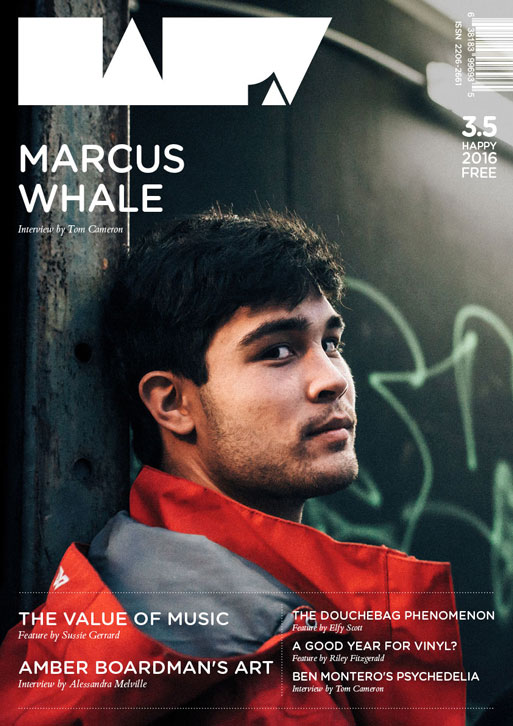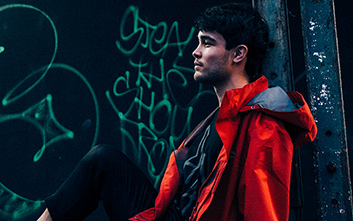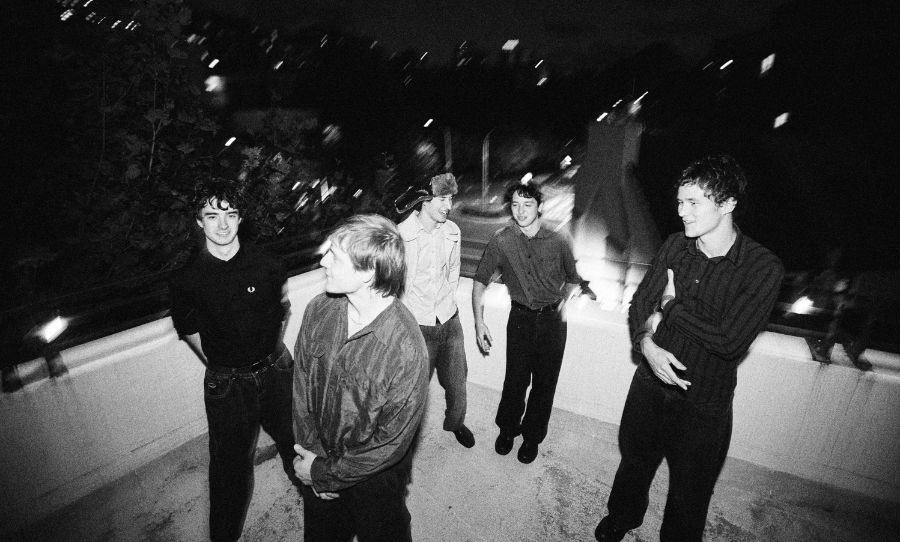If you’ve been following the career trajectory of Marcus Whale, it’s clear that he stands on his own in our bustling scene. Classically trained in composition and not afraid to take on multiple projects (or some spicy issues), you may have first run into Whale through the work of Collarbones, or his other band BV.
His last solo LP Inland Sea was a concept album that imagined a queer utopia outside of post-colonial Australian society based on our patriarchal, male-centric origins and national legends. Now that the meaty release has had five months to sit, we caught up with Whale to chat about it.
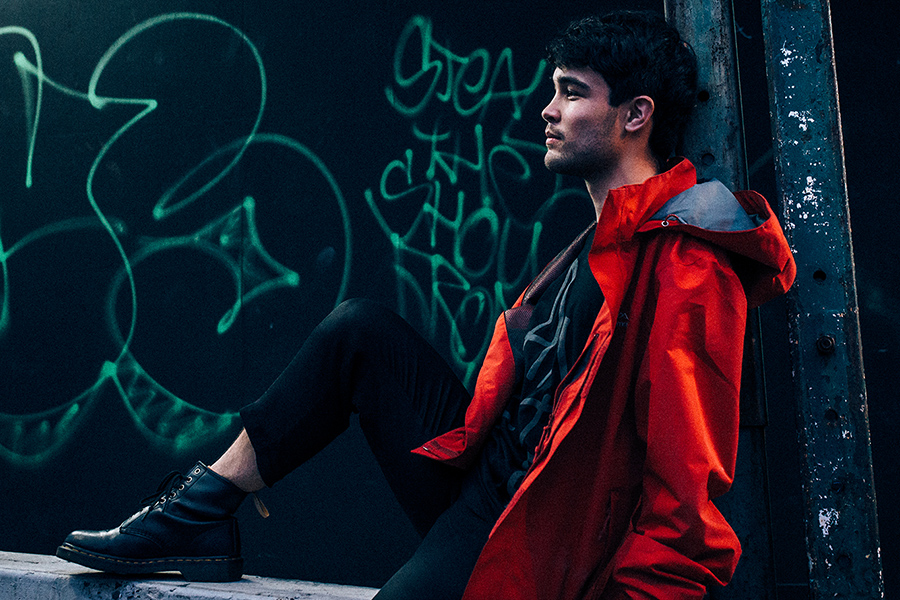
Splitting his time between twin bands and solo acts to boot, Marcus Whale’s repertoire is on it’s way to filling a record store by itself.
HAPPY: Thanks for coming! Been to any good gigs recently?
MARCUS: Last night I saw Jaala.
HAPPY: Newtown Social yeah?
MARCUS: Yeah Newtown Social, it was really kind of extraordinary to see people make music that’s so surprising, complex and non-linear but still really, really soulful. You know, it appeals to my real nerdy side that grew up listening to progressive rock and also the parts of me that crave confessional songwriting. It’s a beautiful combination.
HAPPY: I do know you go to a lot of shows.
MARCUS: I do!
HAPPY: Yeah you’re super into the Sydney scene, but people have been kind of bashing it recently. What do you think?
MARCUS: What’s nice about Sydney is that… when you do something in Sydney you’ve got to really be sure about it and you’ve got to be strong about it because there’s not that many opportunities to play shows, and it’s expensive to live in Sydney. I feel like that does breed some kind of ingenuity, I’m not saying it’s good to be restrictive, but it does mean that people aren’t pretentious about what they do. We’re all in it together. There’s also a lot of stylistic collaboration. When I grew up, going to shows when I was a teenager, every time the lineups would be wildy eclectic. The whole idea was that the night, or the afternoon was really disparate, where the feeling of being together at that moment was more important than some arbitrary sonic thing. That’s a really soulful way to put on shows. At the same time, it is really hard to do things and it would be nice if it was easier.
HAPPY: But we do have such a mix in Sydney for that exact reason.
MARCUS: For sure, yeah. Like, I want to play with… everyone. Well, I want to play with people I like and that is never a genre-specific thing.
HAPPY: You mentioned having to be sure of yourself with a release.
MARCUS: Oh did I? (laughs)
HAPPY: I think we’ll move on Inland Sea. Bit of a controversial subject matter – what’s the response to the record been like?
MARCUS: Yeah, when people talk to me about Inland Sea it’s always, like people come to me really sincerely, and having thought about it a lot. That’s exactly what I wanted. It is about things that are about all of us, that benefit all of us or are things we’re all participating in, in terms of Australia as a colonial country or as benefitting from disposession if you’re not indigenous. So when people come to me and talk to me about it I really cherish their sincerity.
HAPPY: You think people are having a genuine connection with it?
MARCUS: Yeah, a connection. Because the album it’s… a lot of anxieties and it’s not an argument and a resolution, it’s not a beginning, middle and end. It’s nice that we can have dialogue and share in the conversation, because it’s like, I think it’s important that we don’t ignore things because they’re too hard.
HAPPY: Well, some of the best music that’s ever come out has been based on anxieties, or other negative feelings.
MARCUS: Well yeah, because you need conflict. Conflict is crucial to a lot of art, for sure. That’s a bit of a truism, I guess, but it is important for this album.
HAPPY: Now sonically, the album was a fair bit more industrial than anything before. Given you enjoy such a huge range of music, can you pinpoint where that came from?
MARCUS: Well, a lot of people point to the fact that I was a huge fan of Tool when I was 13, 14 or 15. Not industrial strictly, but the types of rhythms and the attitudes of the album come from that. And that’s not really conscious, I just can’t avoid the fact that I’m just such a sucker for that kind of music.
HAPPY: More powerful music?
MARCUS: Powerful, but like power coming from things being a bit confusing. Strong and confusing, that’s the impression that I’m trying to put forward. At the same time, I’m really getting into… actually I only just got into Nine Inch Nails like three years ago. It’s not that important, but I just listened really heavily to The Fragile, and that’s an album that I wish I’d heard at the time, I did have this weird, late-era renaissance with it. Another thing is that Nigel Yang from HTRK co-produced it.
HAPPY: HTRK! I can’t believe I only got passed them a month ago. They’re so fucking good.
MARCUS: Yeah! Nigel was in Melbourne, but now he’s in Sydney and we did this thing together.
HAPPY: Sweet. Now a very recent release from you, Marcus (Not Singing)…
MARCUS: Oh yes.
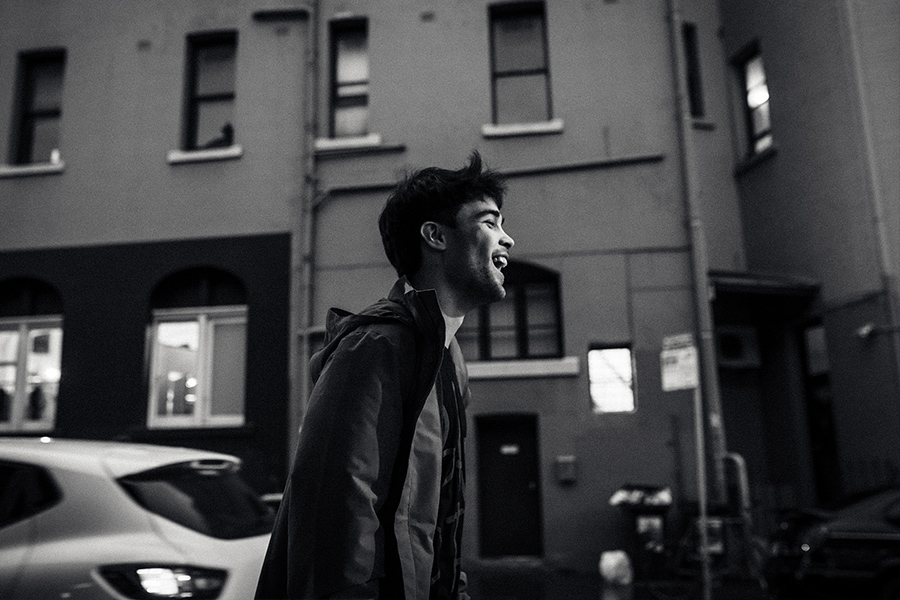
HAPPY: Fresh!
MARCUS: Very fresh.
HAPPY: How long have you been cooking up stuff like that? Instrumental, a bit techno-y…
MARCUS: So, the funny thing about this, is that when I was in high school I was making music under this other name and I did that for a long time, like nine years. After a year or two of that I was making – sort of – techno, but kind of ambient music with four-to-the-floor type beats in it. Then I killed it, but I suppose I just really needed to get back to music like that. This is also me getting back to that gothic type stuff, maybe trying to take those aesthetics, and it’s hard to make this come across in instrumental music, but take that kind of corny, anti-mainstream thing and re-imagine my teen years as, I don’t know, like a super queer, spicy, anti-mainstream person. I tried too hard to be masc, and be the right type of person and I’d redo it.
HAPPY: And you aren’t afraid of conflict this time.
MARCUS: I’m not afraid!
HAPPY: Well, to people who would’ve listened to Marcus Whale, this new stuff would have come across pretty heavy.
MARCUS: Well, this is the thing. The live show for Marcus Whale, two tall staunch looking guys playing drums next to me in a line. It has this militaristic feel to it, but I want to come off as a bit soft, a bit fem but still strong. So I guess I am trying to play with those tropes of gender, because ultimately they’re just vague, arbitrary mythologies. It’s all in a culturally constructed illusion and I’m trying to play with it, and subvert it. Hopefully it comes up as subversion.
HAPPY: Sweet. Now the last thing I want to talk about is Cyborg Pianist.
MARCUS: Oh!
HAPPY: Yeah, it’s not quite like anything I’ve seen. How did that project come about.
MARCUS: So, I did music composition at uni, so my training is in writing for ensembles, soloists and orchestras, well I’ve never written for an orchestra…

HAPPY: But you want to?
MARCUS: Yeah! Well, maybe. It’s kind of hard to get it all together. So, my training is in that contemporary classic field. I’ve known Zubin Kanga through that for a while, and the concert that he just premiered a piece of mine in, no part of it was written before 2011. It’s all music of the last five years, which is really giddy and great for me since all the people in the program are older than me, kind of scary but… all of my dreams as an undergrad was to be in something like that. It can seem stuffy, and a bit high-brow, but I still think there is currency in people training to become really good at instruments in that style and performing new music in that concert format. That sort of stuff is explored a lot in Europe and America but maybe not here, by some people it is. It can be a bit hard to listen but there’s real potential to getting a bunch of people in a room to absorb these sounds that are really unfamiliar, not intuitive, but can still be immersive, beautiful and emotional. I spent years studying that, so I’m just really happy to do that.
HAPPY: Yeah, well it looks great. Must feel good to flex your skills as a composer.
MARCUS: Feels good, to actually do what you did in your degree.
HAPPY: And I guess the more visual elements in that show is a step in the right direction, in terms of getting more people involved.
MARCUS: Yeah, video can be a useful tool. And, it can be misused. That concert, Zubin curated it really well, there’s was a big variety of approaches to it. I think visuals, less well contemporary classical music and more with bands and electronic music especially, visuals can come off as tokenism, like ‘I need to make a dude on a laptop look more interesting’. So I’ve stayed away from visuals in my music, I really want to use them but…
HAPPY: You need to get it right.
MARCUS: Well, it needs to be meaningful, it needs to have a reason. There’s so many, like, iTunes visualisations. I’m not interested in seeing that, give me something more, something with the soul of the performance.
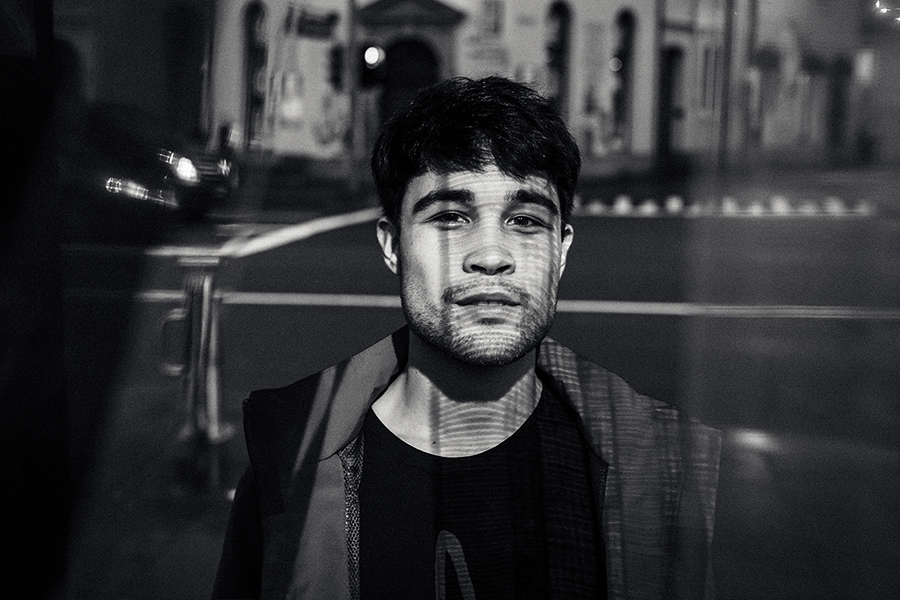
HAPPY: Awesome, now last thing I’m going to ask is what’s up next? You’re kind of juggling a few things at the moment.
MARCUS: I’m always doing a lot of things. I’ll spend a week doing one thing, and maybe a week just watching TV. Right now I’m in the middle of trying to finish a Collarbones album, and there’s a BV mixtape coming out in two weeks, and a song coming out tomorrow…which will be the the past by the time you transcribe this. I’m also trying to make new music as Marcus Whale, which I suppose that Marcus (Not Singing) track is further to that zone, a bit heavier. I’ve been working a lot with this really great musician called Jacques Emery, who’s young, 19 and also at the Con. He makes music of his own.
HAPPY: Under Jacques Emery?
MARCUS: Yeah, actually there’s about five names. He’s sounds are sounds on Bandcamp, that’s where all his music is. He’s incredible, he’s like given me a new lease on life because I’m finding it hard to figure out what I do. Like with Collarbones and BV, there’s a precendent for what it should sound like and for what I do, yeah. It’s hard to negotiate what I need to be.
HAPPY: Do you need to be something? Constantly having a new angle, there’s something to that.
MARCUS: Yeah, it’s a desire, wanting it to be really dramatic when the music comes out. Wanting it to have impact, and be strong. That’s my aim.
HAPPY: Well, sounds sick, thanks for the chat.
Check out Marcus on the cover of issue # 3.5 – our special map-fold edition – below:
